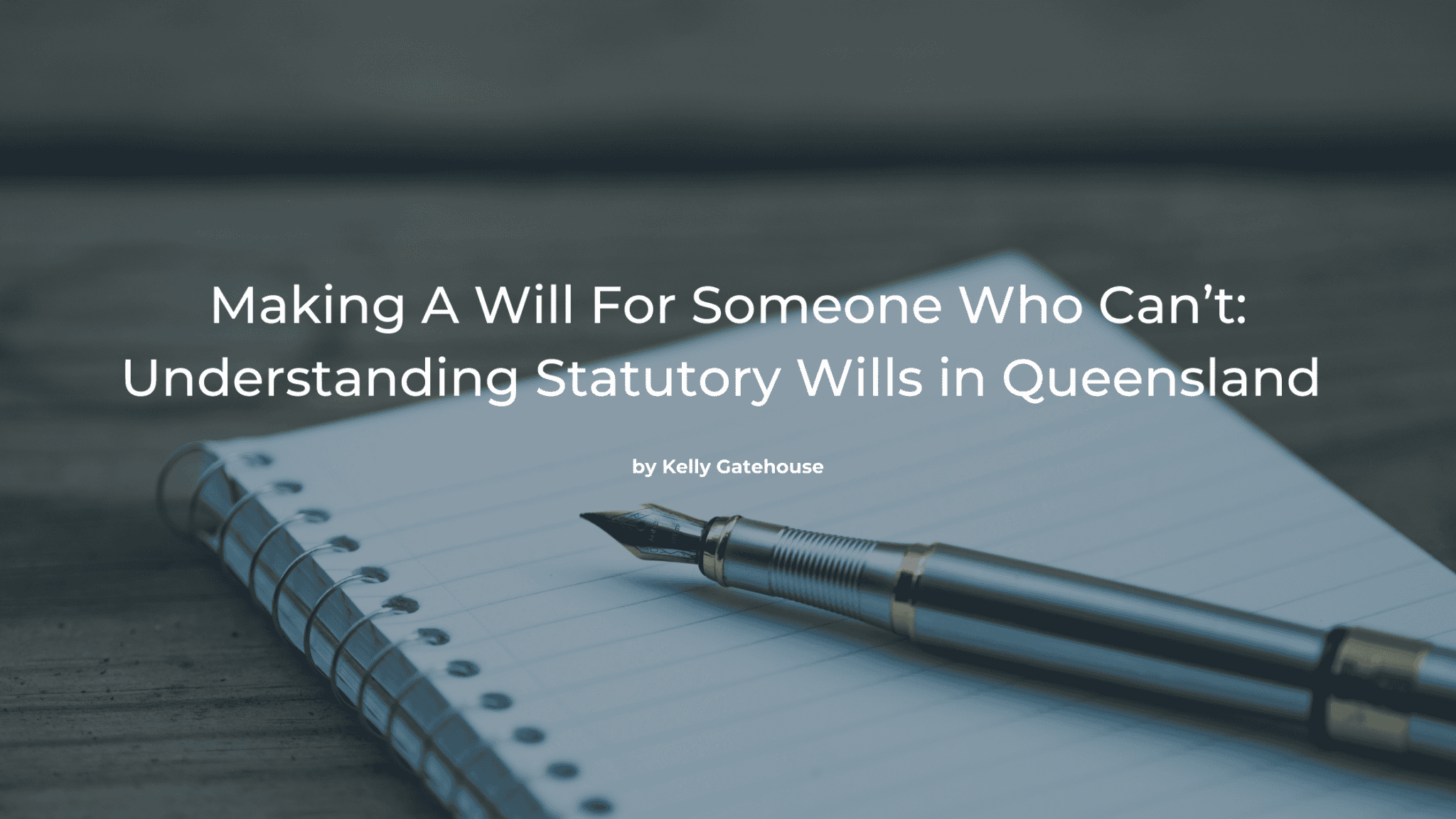At Nurture Law, we often encounter families facing one of life’s more delicate challenges – how to ensure the wishes of a loved one who lacks the capacity to make a will are still respected. Whether due to illness, injury, or disability, some individuals are unable to make their own will. In these cases, the law in Queensland provides a solution: the statutory will.
What Is a Statutory Will?
A statutory will is a court-authorised will made on behalf of someone who cannot legally make one themselves due to a lack of testamentary capacity. Under the Succession Act 1981 (Qld), the Supreme Court of Queensland can approve a will for:
- Adults who lack capacity, or
- Minors in special circumstances.
When Might a Statutory Will Be Needed?
This process is not for everyday estate planning — it is a powerful legal tool for unique situations, such as:
- The person has never made a will and the standard intestacy laws would produce an unfair or unintended outcome.
- Their existing will is outdated due to significant life events like marriage, divorce, or having children.
- The person has substantial assets (like compensation payouts or trusts) requiring careful estate planning.
- The default beneficiaries under intestacy are estranged or unsuitable.
Example: A young man receives a large compensation payout after a childhood accident. He’s been cared for by his aunt, not his estranged parents. Without a statutory will, the funds may automatically pass to his parents — something he likely would not have wanted.
What Does the Court Look At?
Before approving a statutory will, the Court must be satisfied of five things:
- The applicant is suitable to make the application.
- All interested parties have been given a chance to be heard.
- There’s strong evidence the person lacks capacity.
- The proposed will reflects what the person would likely have wanted.
- It’s appropriate for the Court to make the order.
Supporting documents include:
- Medical evidence of incapacity.
- Details of family, financial and personal circumstances.
- Any previous wills or known wishes.
- A draft will for consideration.
Timing Is Everything
The Court can only make a statutory will while the person is still alive. Once the person passes away, the opportunity is lost — which is why seeking early legal advice is crucial. In urgent cases, applications can be fast-tracked.
What Happens After Approval?
Once approved, the Probate Registrar signs and seals the will. The Court keeps the original document safely on file.
What About Costs?
Costs depend on the complexity of the case — they may include legal fees, medical reports, and court filing expenses. The Court may order that the costs be paid from the person’s estate, especially if the statutory will achieves a fairer or more appropriate result than intestacy or any previous will.
Key Considerations Before Applying
- Is it in the person’s best interests?
- Is the estate large enough to justify the process?
- Are there commercial realities to consider — like superannuation or family provision risks?
- Is there evidence of what the person would have wanted, even if informally?
How Nurture Law Can Help
We understand the personal and emotional complexity of statutory will applications. Our experienced team can:
- Navigate complicated family and financial dynamics.
- Gather the right medical and legal evidence.
- Draft a will that reflects dignity, care and foresight.
- Represent you in the Supreme Court of Queensland.
We approach every matter with clarity, compassion, and professionalism — ensuring peace of mind when it matters most.


